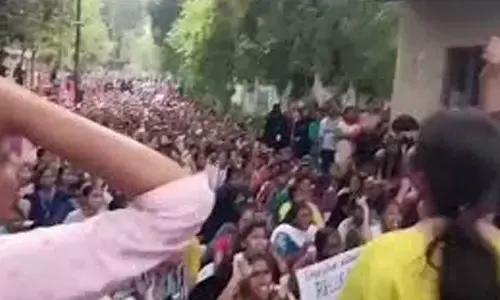How families can dance their way to survive Covid-19 tremors

To survive the Covid-19 pandemic, families around the world are trying to strike their balance between daily routines and other emotionally-laden and inspirational activities that go well beyond their daily schedules in order to counter massive disruption to their everyday life, say researchers
To survive the Covid-19 pandemic, families around the world are trying to strike their balance between daily routines and other emotionally-laden and inspirational activities that go well beyond their daily schedules in order to counter massive disruption to their everyday life, say researchers.
For many families, life has become more precarious, anxious and accelerated.
"Rather than a combination of strategic activities and well-planned decisions, we found that when normality is disrupted abruptly, family care looks more like an intricate improvised 'dance'," said Dr Pilar Rojas Gaviria, Lecturer in Marketing at the University of Birmingham in the UK.
Although there has been a lot of talk about how COVID-19 has 'slowed down' family life, the study in the Journal of Marketing Management by researchers at the University of Birmingham, University of Melbourne and Adolfo Ibanez University in Chile argue that this is not the case for every family.
The teams found that when facing unplanned disruptions to family life, such as Covid-19, while some families may enjoy more free time because they are not commuting, others face unprecedented situations, such as disrupted careers, caring for others and suffering from the loss of income.
"We should avoid assumptions about families being affected in the same way. Many families are struggling with mental health while others are coping well. Many have lost friends or family members, others have not," said Gaviria.
Particularly, families who already deal with more intensive care needs - such as those who have a family member with a chronic health condition must 'dance' their way through unplanned disruptions like the Covid-19 crisis.
In their study of families living with diabetic children, they discovered how, in the midst of chaos, each family finds its own style to 'dance' through their life constraints by alternating 'grounding' and 'aerial' activities.
The authors also found that that this process often occurs instinctively and invisibly, and is usually lead by one family member who "orchestrates" resources and talents at hand to help their family develop its 'dance'.
"In keeping that 'dance' going, it is essential for the family to balance 'grounding movements' with 'aerial movements' that soothe, inspire and motivate family members," explained Gaviria.
For instance, both 'grounding' activities - such as knitting, gardening and baking - combined with 'aerial' activities - like becoming a helping hand in the community, supporting local shops, fisheries and farms worked well to comfort families.
The aimshould be helping families gather resources for movement (energy, time, focus, hope in the future) instead of telling them how to move by setting very strict rules that not everyone is able to follow.











